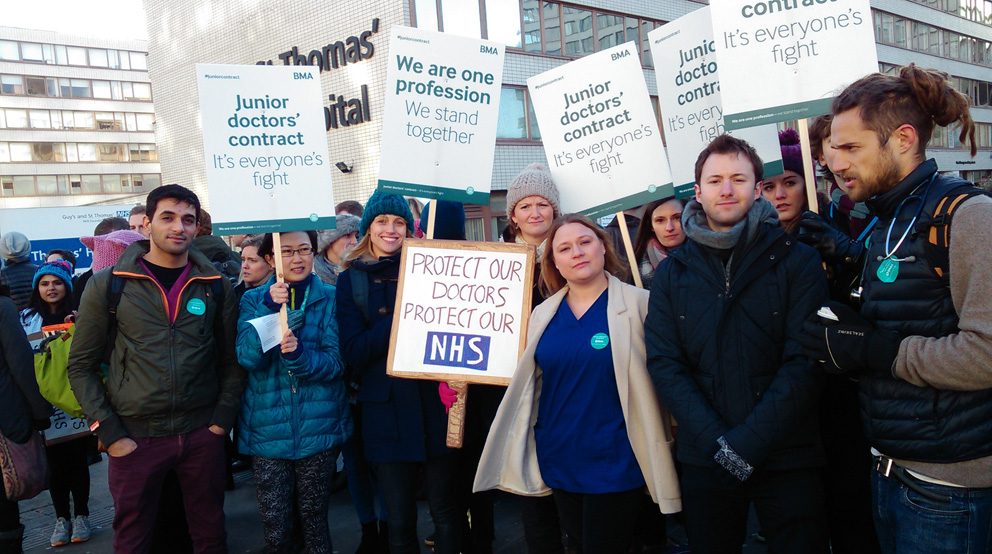NEARLY a quarter of junior doctors say their work makes them feel ‘burnt out’, and almost one-in-three says they are often ‘exhausted’ in the morning at the thought of another shift, according to a General Medical Council (GMC) survey. The report warns that exhausted junior doctors could increase the risk of patient mistakes.
The GMC published the initial findings from its annual national training surveys, a detailed UK-wide poll of more than 70,000 doctors in training and doctors who act as trainers. Almost half of trainees reported regularly working beyond their rostered hours, and around one-in-five say they often feel short of sleep while at work. Forty per cent described the intensity of their work as ‘heavy or very heavy’.
Trainers also reported heavy workloads, with a third of them saying it is hard to find the time they need to fulfil their educational roles. Ahead of presenting the findings at the Patient Safety Congress in Manchester, Charlie Massey, Chief Executive of the GMC, said: ‘Doctors are working in highly pressured environments and they are telling us that, as a result, they are struggling to find time for essential training.
‘This is a major concern for us. Training must be protected and it must be safe, and employers need to address this urgently. ‘But it is also important that the wider issues reported in our surveys, around work-life balance, burn-out and exhaustion, are acted on. ‘We can put off no longer the need to give doctors-in-training – who make up a fifth of all doctors – the resources they need and deserve.
‘As a regulator we are doing all we can, through programmes of work to address doctors’ wellbeing and by giving them the confidence to raise concerns and have them acted on. But it will take investment to solve the issues doctors are telling us about. ‘Those responsible for allocating healthcare funding across the UK must ensure proper provision is made for education and training.’
Ex-health secretary Hunt launched all-out war on the junior doctors during 2015/2016 to impose a contract on them which made them work so many hours that the doctors warned it would put patients at risk. The junior doctors responded in kind, organising multiple strikes against the dangerous contract.
